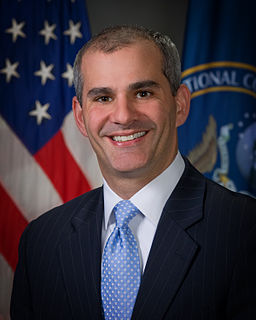A Quote by Antonio Garcia Martinez
Converting Facebook data into money is harder than it sounds, mostly because the vast bulk of your user data is worthless. Turns out your blotto-drunk party pics and flirty co-worker messages have no commercial value whatsoever.
Related Quotes
We get more data about people than any other data company gets about people, about anything - and it's not even close. We're looking at what you know, what you don't know, how you learn best. The big difference between us and other big data companies is that we're not ever marketing your data to a third party for any reason.
In the early days, a Georgia college kid named Chris Putnam created a virus that made your Facebook profile resemble MySpace, then the social-media incumbent. It went rampant and started deleting user data as well. Instead of siccing the F.B.I. dogs on Putnam, Facebook co-founder Dustin Moskovitz invited him for an interview and offered him a job.
You have to imagine a world in which there's this abundance of data, with all of these connected devices generating tons and tons of data. And you're able to reason over the data with new computer science and make your product and service better. What does your business look like then? That's the question every CEO should be asking.
... negative feelings are not true feelings at all; rather, they are your thoughts about something, based always on the previous experience of yourself and others. You will not find Truth in your past data, only past data that is based on other past data that is based on other past data, and so forth. Forget your "past experience" and look directly at the experience you are having. Right Here, Right Now. There is your Truth.
The big thing that's happened is, in the time since the Affordable Care Act has been going on, our medical science has been advancing. We have now genomic data. We have the power of big data about what your living patterns are, what's happening in your body. Even your smartphone can collect data about your walking or your pulse or other things that could be incredibly meaningful in being able to predict whether you have disease coming in the future and help avert those problems.





























